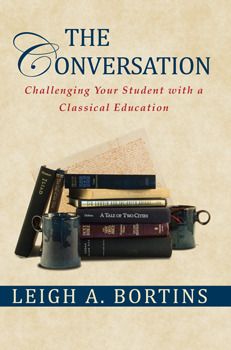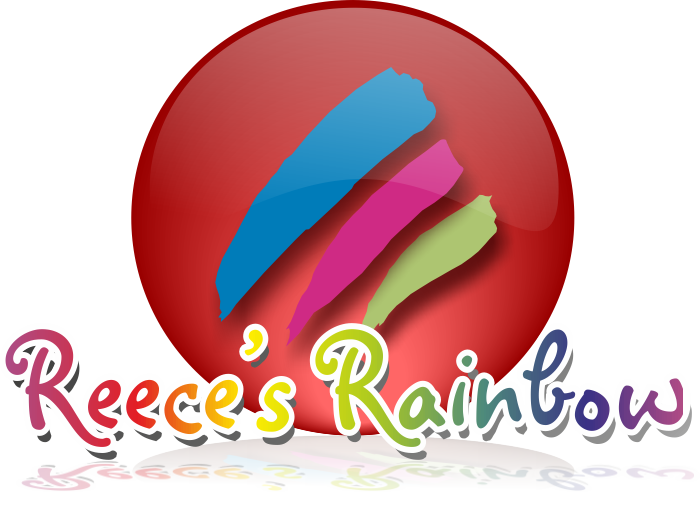
I will admit that I have had a long distance fascination with the classical education approach for years now. Part of my problem is that I could never quite explain what an actual "classical" education was to people, or, quite frankly, to myself.
So, I would sort of dance around our educational goals and plans with a little bit of classical "stuff", but revert back into my comfort zone of how we "normally" did things. I still happen to think my kids are getting a fantastic education, but, it could be better. I could help them think and understand things more deeply by using the classical approach.
There were even some statistics quoted in the book that really hit home for me. It was centered about SAT and ACT scores with different educational backgrounds.
Public schools - students scored 73 points below average
Religious schools - students scored 44 points above average
Homeschoolers - students scored 72 points above average
Independent schoolers - students scored 117 points above average
Classical schoolers - students scored 274 points above average
Okay, even though I am not a person who focuses on standardized tests, nor do I feel they actually accurately show the actual "smartness" of the people who take them...I also don't feel that you can ignore them completely either.
And, I am sorry, but those results cannot and shouldn't be ignored. 274 points above average!!!
The first two chapters in this book finally, at long last, helped define what a "classical" education is for me. I found them equal parts scary and exciting when I thought about this approach with my own kids. Then, I really took a step back and acknowledged what a complete foreign concept it has become to educate in this fashion.
The author sprinkled numerous examples in the book about life with her sons (even where she wishes she had done things differently). But, where I found it the most helpful and inspirational was where she shared the real life examples of how this educational style/approach has worked for her boys. Early in the book, she was sharing how one of her sons filled his days from his studies of history, philosophy, and physics, holding a part time job, also playing rugby, attending church, and doing volunteer work. One sentence in particular jumped out at me at the conclusion of all the "stuff" he has done. He does these things because he loves life, not in order to earn a degree.
Especially as my oldest finishes high school, I realize how badly I want him to be able to go out and create an exceptional life for himself. Not just do well on tests. Not just get straight A's. Not just get accepted into a college. I want him to look around and taste and see that life is good and his life shouldn't look like anyone else's. It should be unique to him and who God created him to be.
I knew I was going to like the author, Leigh Bortins, in the first chapter when she started talking about the idea of adolescents in today's cultural mindset versus the last generation, or before. In generations before, teenagers would be expected to take on adult responsibilities (her example was to run the family farm for a week while the parents were out of town), but, in our generation, teenagers (and beyond) are coddled and our limited expectations have created the stereotypical, irresponsible, disrespectful, difficult...teenager.
One other point the author makes in the first chapter hit home with me. She was talking about real life opportunities and the fact that school (sitting in a classroom with a bunch of other people their
exact age) doesn't show them much of anything about how real life is going to work. So very true, isn't it?
I liked what she had to say about being a confident parent and that we end up reverting to cultural conformity when our confidence is shaken. Oh, so true. When we are feeling unsure and vulnerable, it is much easier to just go along and do what others are doing. It does take courage and confidence to walk a different path. I have tackled the first step in deciding to homeschool my kids. Now I just have to get the courage up to move towards a classical education.
In this book, I found little bits of information that I knew from my own experiences to be true. Bits like this one..."When I was in public high school, I didn't have time to build decks, travel, work and contemplate ideologies with my classmates. I completed my assignments and went to a selective college and promptly discovered that I had never learned how to learn. I had never been expected to do more than regurgitate information found in textbooks. I had been trained to find answers rather than understand problems. I want our sons to be able to do both."
The author also talked about the notion that getting into college is most parents goals for their children. I have long thought that college isn't for everyone....but that is another blog post for another day. She talked about finally being able to switch her focus for her boys from getting them into college, to having the larger to goal of raising virtuous men. I totally understand what she means, and I do want more for my children than for them to be great regurgitators. You know?
Classical education attempts to understand things through vocabulary, dialectic (clear reasoning) and rhetoric (wise choices). The main portion of this book explained how the rhetoric portion of the classical education actually works. All about conversations and expressing truth. About recognizing and tackling faulty arguments. To be able to defend and carry the truth onto others and to separate truth from the lies and manipulations. As I read this section, I just kept thinking about the rhetoric that the media and society is spewing about Cecil the lion and the Planned Parenthood videos....but that too, is another blog post for another day.
Ms. Bortins, in the biggest part of the book, breaks down in each chapter how to tackle different subjects in a classical manner. Using examples from literature that we are probably familiar with (classically educated or not). Like the Scarlet Letter of Dickens A Christmas Carol.
I liked her chapter on Speech and Debate with a classical education. She talked about how we all need to practice these skills, because they are necessary and they scare us. She recommended having your kids start practicing speaking formally in front of people/their peers by age 4 or 5. I can just see the deer in the headlights looks I will get from a few of my kids about that one.....although some of them will eat up the opportunity to speak to the masses!
The goals and reasons that she spoke of for the importance of speech and debate reminded me of my pageant days and all the prep that went into knowing about current events and being able to discuss and form opinions as well as support my arguments...and be able to state them out loud. As fluffy and unimportant as some parts of pageants were, that was a nice side effect. I guess I was sort of a classical educated beauty queen!

I will just touch on a few more points that stood out to me from this book. In the chapter on a classical education through math, even though her point had nothing to do with math. She said that she had noticed that looking at homeschoolers, especially those who homeschooled through adulthood, is that they all like talking with their children. Just a simple point. Has nothing to do with math. But, it is so true. I do like talking to my children. I like having real conversations with them, even about the hard stuff. Now that D-man and A-girl are away from home a few days a week attending classes outside of our home. I am not able to talk to them as much as I would like. I miss that.
We have dabbled in Latin studies at our homeschool and Ms. Bortins has inspired me to do more than just dabble with it. I am actually, as we speak, digging out what I already have and researching other options for L-girl to tackle this year in 8th grade, and finding ways I can fold Latin studies into class for the younger set.
She sort of wrapped up her book with a discussion on the goal of graduation and beyond. I am paraphrasing here, but it went back to her earlier thoughts on her goals changing from college admission to raising virtuous men. She stressed the fact that it isn't "too late" to get started with a classical approach. I loved her family saying "Work hard, play hard, and sleep hard." Good goal for all of us. College isn't the be all, end all. It is a small piece of our life and time.
She ended the book by giving some hands on games and application tools you can use to get "The Conversation" started with your kids.
I liked this book. Yes, at times, I will admit I was a little bored. Yes, at times I was inspired and encouraged. There were even a few times when I was scared and wanted to run away and not think about making changes to how we do things. But, in the end, The Conversation inspired me to make some changes. Yes, I will start small and build from there. It is a start. I will carpe diem.
You can get a copy of The Conversation, on sale right now, for $12.00
Take a look and see what other TOS Reviewers thought about The Conversation.





















0 comments:
Post a Comment